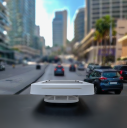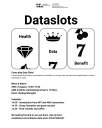Titus Venverloo
Lead, MIT Senseable Amsterdam Lab at MIT Senseable Amsterdam Lab
Activity
- 3Updates
- 0Thumbs up
- 0Comments
Shape Amsterdam's Carbon-Neutral Future with MIT!

🌍 Join the Senseable Amsterdam Lab (SAL) - a collaboration between AMS Institute and MIT.
📊 Unleash the power of data to design novel climate-neutral solutions.
🔍 Explore real-time environmental monitoring, thermal storage, decarbonizing construction, and water quality sensing technologies.
🚀 Partner with us to pioneer new research tracks for a greener tomorrow.
If you have ideas or suggestions, please reach out to Titus Venverloo - tvenver@mit.edu
The MIT Senseable Amsterdam Laboratory
Sensors embedded throughout the city, and pervading our lives, generate data at unprecedented scales. This gives unique opportunities to understand and design cities in novel ways — for this, we need new methods and tools.
The Senseable Amsterdam Laboratory (SAL) is a groundbreaking research initiative between AMS Institute and the Massachusetts Institute of Technology (MIT) that challenges what exists today by introducing novel data — and science-based methods to help the City of Amsterdam transition to a carbon-neutral city. SAL research will contribute to improving the quality of life in Amsterdam based on the development of critical scientific research, with the potential of extending its innovations to other cities worldwide.
SAL currently works on 4 research tracks, as listed below. SAL is looking for new research partners to contribute to these tracks or develop new research projects. Research partners could support us financially by joining our research consortium, with large datasets, or as advisory partners. In case you or your organization has ideas about how the unique technical knowledge MIT could contribute to making Amsterdam climate-neutral, feel free to reach out to the MIT Senseable Amsterdam Laboratory lead, Titus Venverloo: tvenver@mit.edu.
Senseable Amsterdam Laboratory Research Tracks
1. Real-time environmental monitoring
We are deploying radically affordable mobile sensors in the urban environment to measure climate-related stresses and hyperlocal greenhouse gas (GHG) emissions. In this project, we develop low-cost air quality sensors that are mounted on service vehicles, such as taxis, garbage trucks, and buses. These sensors provide real-time insights into local pollutants, GHG emissions, and climate stresses in Amsterdam.
2. Thermal storage
Develop solutions to harness the cooling and heating power of water in Amsterdam. In addition, by making heating and cooling buildings more efficient in Amsterdam we could have a significant impact on the total CO2 emissions of the city. Hence, in this research, we will explore the potential of aqua thermal storage and exchange solutions in the context of Amsterdam’s historic canal system.
3. Decarbonizing Construction
Here we focus on how novel data collection systems can reduce the GHG emissions from new developments in Amsterdam. Firstly, we collect air quality data around construction sites to evaluate the local impacts of construction. Secondly, we aim to develop AI models that can identify and quantify building components from demolition sites, enabling more reuse in the construction sector.
4. Water Quality Sensing
Due to increasing temperatures - harmful algae can bloom quicker in the canals of Amsterdam. We are developing a state-of-the-art mobile water quality sensor that can identify harmful species of algae, providing a real-time monitor of algae in Amsterdam.
MIT Summer Workshop Keynotes
Hello Amsterdam Smart City Community,
I would like to extend an invitation to the kick-off key-notes of the MIT Summer Workshop on the 28th of August.
Between 10:00 to 11:30, there will be an open lecture by the MIT Center for Real Estate Director, Siqi Zheng, and the Scientific Director of AMS Institute, Eveline van Leeuwen, on the topic of Decarbonization and the Social Cost of Climate Change.
Eveline will dive into “The (im)possibility of a fair transition towards carbon neutral cities” and Siqi will talk about “Cities, buildings, and climate change: mitigation and adaptation”.
If you are interested, please email tvenver@mit.edu so we make sure we have enough seats. The event will take place at the AMS Institute, in the Amsterdam lecture room on the 1st floor, and you are welcome to walk in from 9:45 am onwards.
For reference, the abstract of Siqi and Eveline is attached below.
Siqi Zheng is the STL Champion Professor of Urban and Real Estate Sustainability at the Center for Real Estate of the Department of Urban Studies and Planning at Massachusetts Institute of Technology (MIT). She is the faculty director of the MIT Center for Real Estate. She established MIT Sustainable Urbanization Lab in 2019, and MIT China Future City Lab in 2017. Prof. Zheng was the former President of the Asian Real Estate Society (2018- 2019) and is on the Board of the American Real Estate and Urban Economics Association (AREUEA). She is the Co-Editor of the Journal of Regional Science, and Environmental and Resource Economics.
Eveline van Leeuwen is an expert in urban economics, is Scientific Director at Amsterdam Institute for Advanced Metropolitan Solutions (AMS Institute). In addition to her role at AMS Institute, Eveline is Chair of Urban Economics at Wageningen University & Research. Furthermore, she is Vice President of the European Regional Science Association (ERSA), a member of the OECD Expert Advisory Committee on Rural Innovation and a member of the International Advisory Board (IAB) of the Amsterdam Economic Board. In various other committees she advices both national and regional policymakers.
Stay up to date
Get notified about new updates, opportunities or events that match your interests.


